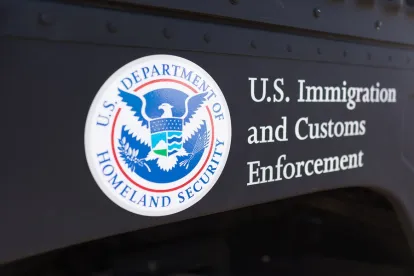A.G. Rules in Favor of Victims of Domestic and Gang Violence
On Wednesday, Attorney General Merrick Garland rescinded a Trump-era decision that had made it much more difficult for victims of domestic abuse and gang violence to apply for asylum in the United States.
In a detailed legal opinion, Garland determined that the decision of former Attorney General Jeff Sessions threatened “to create confusion and discourage careful case-by-case adjudication of asylum claims” because it improperly created a “strong presumption against asylum claims based on private conduct” rather than the actions of government officials. Because a large percentage of asylum seekers from Mexico, Central America, and South America fear returning to their countries of origin based upon experiences of gender-based violence and/or gang extortion and retribution, this decision has the potential to impact thousands of immigrants currently seeking protection in the United States. Immigrant rights advocates widely praised the decision, with Karen Musalo, director of the Center for Gender and Refugee Studies, stating she was “very heartened that those who are still to apply and those whose cases are still in the system will have the benefit of removing this prejudicial prejudging of their cases.”
The decision will apply to the immigration courts and to the Board of Immigration Appeals, both of which are under the umbrella of the Department of Justice.
USCIS Will Provide Employment Authorization for Crime Victims
On Monday, the U.S. Citizenship and Immigration Services (“USCIS”) announced it would expand access to employment authorization to some immigrants with pending visa applications who have been victims of serious crimes and assisted law enforcement in prosecuting the perpetrators.
The United States currently offers 10,000 “U visas” every year to immigrants who have been victims of significant crimes – such as domestic violence, human trafficking, rape, and aggravated assault – and subsequently, aid the police and/or district attorney’s office in bringing the criminal actors to justice. Once approved, the visas provide access to work authorization, as well as the ability to apply for permanent residence a few years after that. However, given the high demand, applicants may be waiting five years or more until their cases are approved. With this new decision, the USCIS will create a process to allow tens of thousands of U visa applicants to apply and receive work permits while their cases are reviewed, allowing immigrants to lawfully work and apply for driver’s licenses during these extensive waiting periods.
Currently, nearly 270,000 U visa applications are pending with the USCIS.
Biden Expands Program Allowing Minors to Join Parents
To strengthen a program that began during the Obama administration, the State Department and Department of Homeland Security jointly announced that legal guardians and parents with legal status, including those with pending asylum or visa cases, coming from Central American countries, can now apply to bring their children to the United States.
Previously, the Central American Minors (“CAM”) program, which had permitted minor children to join parents who obtained lawful status in the United States, did not allow parents or legal guardians with pending cases to apply to bring their children to the United States.
This move is the second stage of the CAM program’s revival and expansion. The first occurred three months ago when the government began processing applications of people who had been denied the opportunity to enter the U.S. after the Trump administration ended CAM in 2017. The new move is expected to open access to tens of thousands of children seeking reunification in the United States.



 />i
/>i
